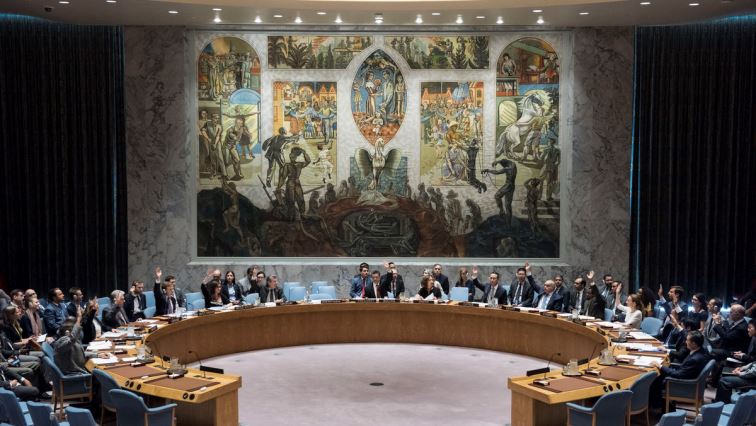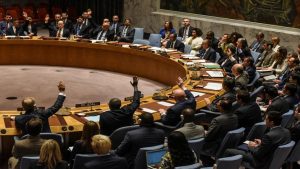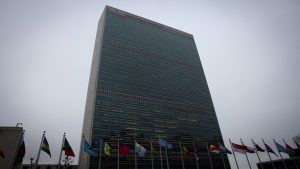The UN Security Council is due to vote Friday on a resolution that would authorize the deployment of observers to war-torn Yemen to oversee a fragile truce in the strategic Red Sea port of Hodeida.
The vote on the draft, which was submitted by Britain, has been rescheduled multiple times, but was now expected to unfold at about midday.
Negotiations on the resolution, which would also endorse the results of recent peace talks in Sweden, were ongoing, diplomats said, without offering details on what was under discussion.
The UN-brokered peace negotiations in Stockholm last week saw Yemen’s warring parties agree to a ceasefire and the withdrawal of fighters in Hodeida, a key gateway for aid and food imports.
The city is a vital lifeline for millions at risk of starvation, and the ceasefire between Saudi-backed government forces and Huthi Shiite rebels is seen as the best chance yet of ending four years of devastating conflict.
The latest version of the UN draft — which was amended several times this week at the request of the United States, Russia and Kuwait — “insists on the full respect by all parties of the ceasefire agreed” for Hodeida.
It authorizes the United Nations to “establish and deploy, for an initial period of 30 days from the adoption of this resolution, an advance team to begin monitoring” the ceasefire, under the leadership of retired Dutch general Patrick Cammaert.
According to the UN, Cammaert — who served multiple times as a UN peacekeeper — was expected to arrive in the Jordanian capital Amman on Friday, before heading to the rebel-held capital Sanaa and Hodeida.
The draft resolution also authorizes UN Secretary General Antonio Guterres to “submit proposals as soon as possible before December 31, 2018 on how the United Nations will fully support the Stockholm Agreement as requested by the parties.”
Diplomats said the UN observer mission could consist of 30 to 40 people, tasked with ensuring the withdrawal of the warring parties from Hodeida and the safe passage of humanitarian aid.
The observers will head up monitoring teams made up of government and rebel representatives, under the auspices of a Redeployment Coordination Committee headed by Cammaert.
– Food insecurity –
A week ago, following the talks in Sweden, UN envoy Martin Griffiths asked the Security Council for the quick deployment of observers.
But the negotiations were particularly tough, with Russia at one point threatening to use its veto if a mention of Iran supporting Huthi rebel attacks — inserted by the United States — was not removed.
In a compromise, the phrase “further condemning the supply, from Iran and other actors” of the Huthis became “the supply, from whatever source.”
But in the end, the entire paragraph was scrapped from the final version.
The war in Yemen between the Shiite Huthi rebels and troops loyal to President Abedrabbo Mansour Hadi escalated in 2015, when he fled into Saudi exile and the Saudi-led military coalition intervened.
Since then, the war has killed some 10,000 people, according to the World Health Organization, although human rights groups say the real death toll could be five times as high.
On December 8, the UN said that as many as 20 million people in Yemen were “food insecure,” calling the situation the “world’s worst humanitarian crisis.”






